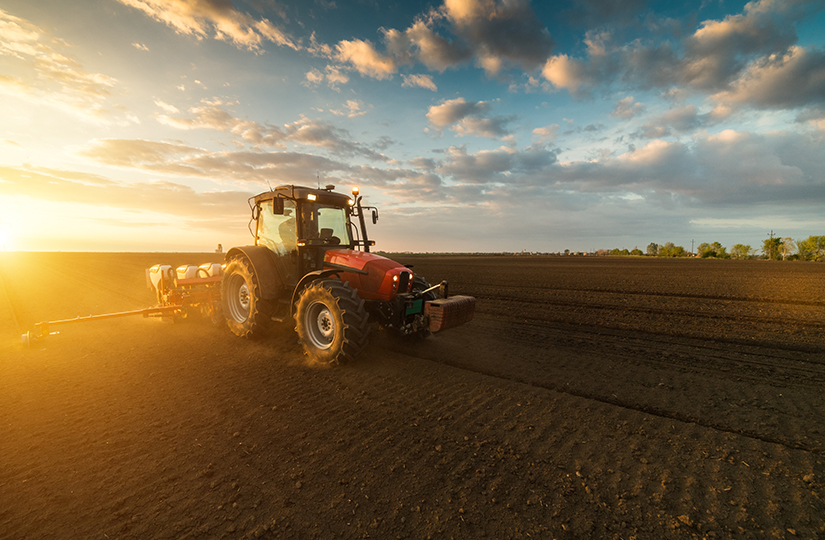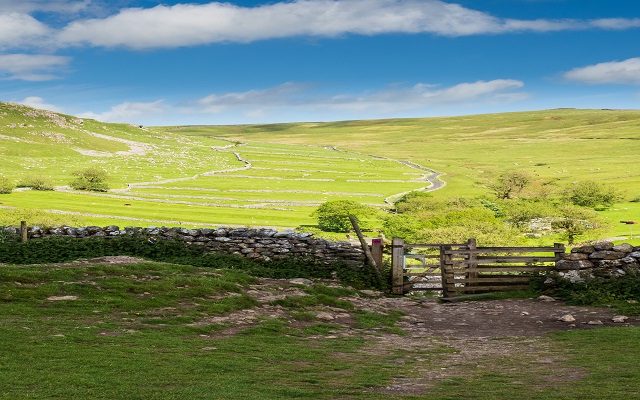Land Business Update | Week Commencing 11th April
Welcome to our update on key land management, farming, planning and energy issues.
Environment
‘Now or never’ says IPCC on climate change action, which is a ‘file of shame’ for Western countries
This third in a trilogy of reports from the IPCC details the options and costs of addressing climate change. It says that if the world is to avoid dangerous warming and have a 50:50 chance of holding temperature rises to 1.5°C, then emissions have to peak by 2025, before falling 43% by 2030. This includes methane reducing by a third by 2030. To do this would need a massive change in political and personal effort, given that emissions rose by a record 5% in 2021. However, there are faint glimmers of hope. 18 countries have managed to cut their emissions over the last 10 years and renewable energy costs have reduced by as much as 85%.
The report makes clear that we, as citizens of the world, should not just rely on governments to deliver the changes that are needed. It highlights the role of behavioural change on emissions reductions, such as shifting diets. One of authors of the report said, ‘The way we move around, the way we eat, the way we generate energy, everything needs to change.’ Describing the report, UN secretary general António Guterres said: “We are on a fast track to climate disaster: major cities under water, unprecedented heatwaves, terrifying storms, widespread water shortages and the extinction of a million species of plants and animals.”
In the UK, Martin Lines, speaking for the Nature Friendly Farming Network, said that agriculture can have a significant positive impact but should not be used by other industries to offset their inaction. He also said that reducing meat consumption and only eating meat that has the lowest emissions would be needed. He called for farmers to show what actions they can take and to take them now.
Farming
English grants and schemes now open
We have produced a poster showing when the schemes and grants available throughout the Agricultural Transition Plan period are likely to open.
Grants
| Forestry Commission | England Woodland Creation Offer (EWCO) – open (rolling application window) |
| Farming Transformation Fund | Adding value grant to open this spring |
| Farming Innovation Programme | Farming Futures R&D Fund – climate smart funding – Eol closes 18th May. Large R&D partnership projects Round 1 – closes 29th June. Research Starter Projects Round 2 – opens spring 2022. |
Schemes
| Countryside Stewardship Scheme | High Tier closes 29th April and the Mid-Tier closes 29th July. |
| Future Farming Resilience Fund | Access free advice from one of our farming consultants. Contact Marie Charles to register your interest ASAP before 31st May as spaces are limited. |
| Landscape Recovery Scheme | Closes on 24th May. |
| Lump Sum Exit Scheme | Opens later on in April. |
Contact anyone in our team if you would like a copy or have any questions.
In Scotland, the Agri-Environment Climate Scheme (AECS) is open for applications but closes on 29th April – so hurry!
Sustainable Farming Incentive 2022 further details published
The scheme will open in June, with a rolling application window. It will be limited to the three standards listed below. The payment rates have been confirmed to be as follows:
| Introductory level | Intermediate level | |
| Arable and Horticultural Soils | £22/ha | £40/ha |
| Improved Grassland Soils | £28/ha | £58/ha |
| Moorland | £10.30/ha; £265/agreement Commons – an extra £6.15/ha |
We have summarised the key details in our blog post ‘Practical pointers on the 2022 Sustainable Farming Incentive’. If you are interested in entering the SFI 2022 scheme, please contact Paul Dennison or your local Strutt & Parker farming consultant. NB Funding for an annual health and welfare visit from a vet will also be available for livestock farmers.
New Welsh farm and land management schemes announced
The Welsh Government has announced £100m of funding for various schemes covering six themes:
- Farm-scale land management – encouraging actions to enhance natural resources.
- Landscape-scale land management – delivering nature based solutions at a landscape-scale.
- On-farm environment improvements – including enhancing fuel, feed and nutrient efficiency and encouraging the use of renewable energy.
- On-farm efficiency and diversification – to encourage investment in new technology / equipment and diversification.
- Woodland and forestry – supporting woodland creation, restoration and the creation of a timber-based industrial strategy.
- Food and farming supply chains – investing in the Welsh food and drink industry.
The schemes are either already open or will open within the next few weeks. If you are interested in any of the above and would like to know what could be available for you, contact our farming team.
Organic Farmers and Growers publish manifesto to promote organic farming
OF&G has published this interesting short report as it says that organic farming is the only formally recognised and defined agro-ecological and regenerative approach, yet it appears often to be ‘airbrushed out’ of debates about food and farming systems and the management of our land. One of the key points is makes is that the reason organic food is often more expensive than that produced by other means is, in part, because organic methods ensure that environmentally harmful practices are largely avoided and public goods are thereby provided. Put another way, in economic terms these costs are ‘internalised’ rather than ‘externalised’. Another interesting point is that if 10% of UK farmland was organic, around 9.4m tonnes of greenhouse gas emissions would be avoided and the increase in carbon sequestration would be worth over £188m annually in carbon permit trading terms.
Ban on soil urea fertilisers delayed to help farmers manage costs and give them time to adapt
The government has delayed introducing a ban on solid urea fertilisers, which was its preferred option for reducing ammonia pollution. Instead new measures will be introduced to limit pollution from urea fertiliser, including self-regulation by the farming sector on the use of solid urea fertilisers; this has been welcomed by the NFU but is likely to worry environmental bodies as environmental self-regulation has not worked well to date. How the Farming Rules for Water are implemented has also been revised to allow autumn manure spreading, and new slurry storage grants will be made available this year.
Farming labour shortage could mean price rises, MPs warn
The House of Commons’ Environment, Food and Rural Affairs Committee has said that that ‘without fundamental change’, the combination of COVID-19 and Brexit meant the UK was facing ‘a chain reaction of wage rises, leading to price increases and food production being exported abroad’. While it welcomed some of the government’s work, the Committee has called for English language rules for skilled workers to be eased and the seasonal worker visa scheme to be expanded. It says that in 2021 a sudden decline in overseas labour led to more than half a million job vacancies in the sector, out of a workforce of four million. The British Meat Processors Association, the Food and Drink Federation and the NFU have all been critical of the situation since early 2021.
Property and rural economy
Scottish ‘controlling interest’ register now available
The new register of people who have a ‘controlling interest’ in Scottish land aims to provide more transparency on ownership and land management. Owners and tenants (of more than 20 years) have 12 months to register, after which penalties will be charged. The register was a commitment under the Land Reform (Scotland) Act 2016.
Fewer than a third of councils have handed out COVID-19 business rates relief
Most councils still have not paid out their share of the COVID-19 relief package for businesses, despite pledges for it to be paid ‘quickly and fairly’ via councils.
Planning reforms not likely to be included in the Queen’s Speech
The Planning Bill is reported by Estates Gazette to have been removed from the legislative agenda as the government has tried to reduce the amount of new legislation and also, probably, avoid controversy within the Conservative party. The previous Planning Bill was scrapped in 2021 following resistance from businesses, campaigners and Conservative MPs that it would open up protected land for development and may leave the UK in breach of legally-binding environmental targets.






